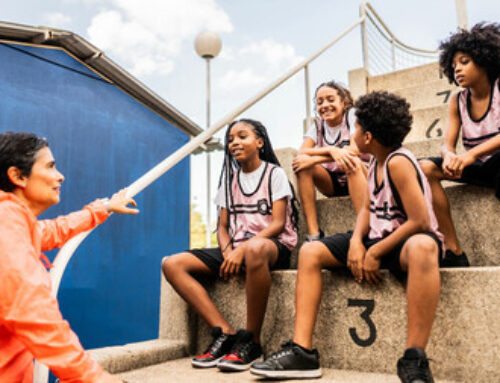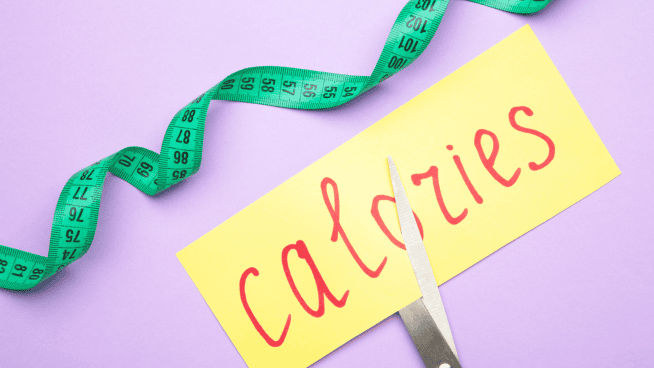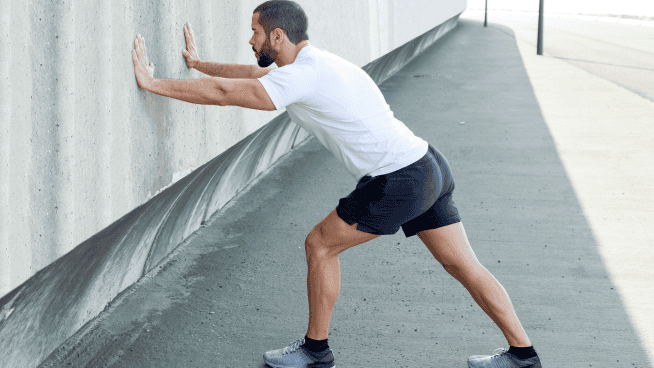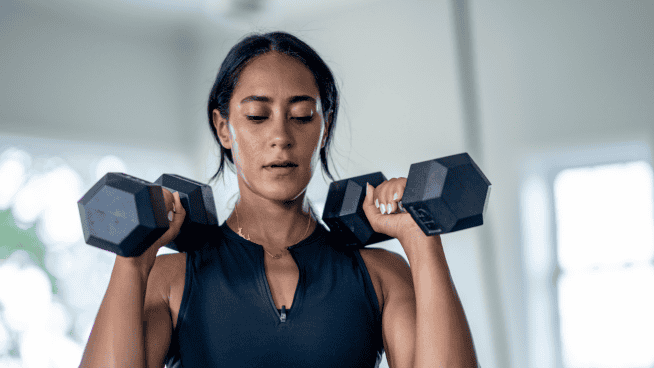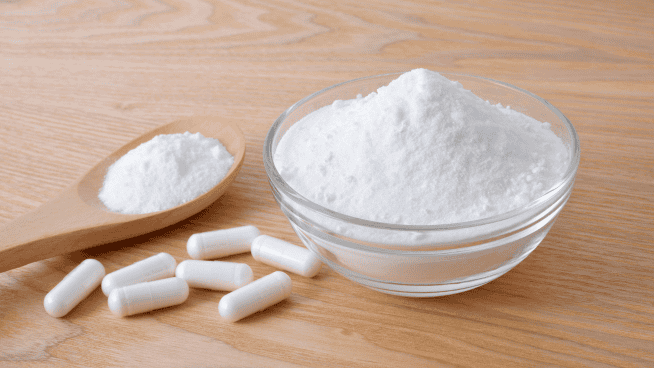After a Devastating Injury, Xavier PG Edmond Sumner is Ready to Prove Himself in The NBA
When Xavier made their run to the Elite Eight during March Madness, they did so without one of their best players. Edmond Sumner—a redshirt sophomore point guard—was averaging 15 points, 5 assists and 4.3 rebounds per game for the Musketeers before he went down in January with a torn ACL. Xavier head basketball coach Chris Mack calls Sumner “a fearless competitor and a terrific teammate,” qualities that should serve him well as he looks to rebound from injury and excel in the NBA.
STACK caught up with Sumner at Impact Basketball in Las Vegas, Nevada to find out how his rehab is progressing and to check out the skills that set him apart in a crowded draft class.
STACK: Where are you from and how did you first discover basketball?
Edmond Sumner: I’m from Detroit, Michigan. I really got started playing basketball when I was 5. I was playing for a 6-and-under team for a little bit, and then when I turned 6 I had to play 8-and-under because there was no (other) league. My dad kinda put me in the fire. He was coaching an older group, so he wasn’t coaching me (at the time). (Then) he put me on the team. From there, I always took basketball serious. I didn’t play any other sport. I just wanted to play basketball all day. I was always around the older guys.
Growing up, do you remember feeling like you were ahead of your peers?
Growing up, I was kind of more advanced because I played up a lot. Then (there was a time) I stayed the same height for a while so it was like, ‘dang, am I really good enough for the next level at my height?’ Then I grew more and my game just continued to get better and better. In high school, I realized I could hang with the big dogs.
RELATED: Duke’s Luke Kennard Is Out To Prove He’s an NBA Franchise Player
Can you take us back to the emotion of sustaining a torn ACL mid-way through the season?
When it first happened I really wanted to tell myself that it wasn’t my knee. Heading back to the locker room, I was trying to convince the specialists who are looking at my leg that I was totally fine. I wanted to go back out there and play. But as it went on, I kind of started to realize it was possibly my knee. … The whole night I was praying it was something that’s not my ACL. When I found out it was, it was pretty heartbreaking.
What was your mindset after you found out?
Right after, I didn’t want to do anything. I really didn’t want to talk to anyone. I just sat in my room for a while, but knowing me I know I wanted to get back and be able to play again. So I knew just sitting there playing the pity party wasn’t going to get me to where I wanted to be. So I told myself, ‘damn, I’m going to tackle it as hard as I can and get back on the court.’ I sat in my room by myself for a day thinking about everything and then it clicked—‘alright, it’s time (to go back to work).’
What has your rehab process been like?
My rehab process has been a little weird. When I first initially hurt it, I couldn’t get the surgery done because I had a lot of swelling and a bone bruise. So I had a lot of pre-hab before surgery, which was fine. I didn’t really see a big difference. I thought I’d be able to walk again before the surgery, but I didn’t see any difference. Then I got the surgery. You start to see all your muscle fade away and that first week or two was hell. Honestly, it was very tough. You’re just trying to tell yourself you can do it, but at that time you couldn’t do it. But as the weeks go on, you just progress so fast. Seeing myself progress more and more, that motivated me more. It’s been great so far. I’m getting better every day.
What helped you get through those tough times during the early going?
I leaned on my day-by-day progress. Each day, you’re going to see something—be it bending, you’re going to get better at something. Seeing myself getting better (was huge). Seeing the swelling going down, I was just like, ‘OK, it’s not the end of the world. I’m going to get better. Just keep going.’
Has anyone been particularly helpful to you during this rehab journey?
My mom and dad of course, they’ve been with me through the whole process. But also (Xavier head basketball coach Chris Mack). He’s torn both his ACLs, so he was steadily giving me feedback and telling me his process. He went through it and was letting me know I’m going to come back from this. That was a big thing. As soon as it happened I talked to him and he kind of got me through it. Then some of my closest friends, you know? They stayed with me. They let me know, ‘buddy, you’re going to get better. Don’t worry about it.’ Stuff happens but we’ve got to get on with life.
Where would you say you are in your rehab?
I’m a lot better. I feel good walking and stuff. I’m telling my PT I’m ready to do stuff, but he knows it’s not time. But I feel good. To me, I can go play basketball right now (with the way) I’ve been feeling. That’s how I feel. Everything’s going well, I’m getting strong, I’m heading in the right direction.
What have you been trying to convey to NBA teams during the pre-draft process?
I want them to know that I respect the process. I’m never in a rush. I notice things I can get better at. I notice what I’m good at, also, but I love to learn. I’m always willing to learn and play behind people and pick their brains. I love just getting better.
What do you think sets you apart from some of the other prospects in this draft?
The best part of my game are things you can’t teach—my size, my athleticism and my speed. Those are my biggest assets, being able to see over smaller guards and use my size.
Do you think going through this injury will give you a different perspective?
It benefits me mentally and physically. I get a chance to actually take care of my body, develop my body more and strengthen a lot of muscles. That’s the biggest thing. Mentally, going through some things—it makes you more hungry. It makes you want it even more cause you didn’t take the easiest route and you’ve got a lot of bumps on the road. It makes you story greater. It makes you love the game even more because you’re sacrificing so much.
How much will it mean to you when you’re finally on an NBA roster?
It’ll mean the world. Everybody grows up wanting the opportunity to play in the NBA. But some things have happened in my career, you might think ‘my opportunity is gone.’ But (whereever I go), they saw that opportunity in me. It means the world. I just want to keep proving to myself that I’m able to stick around the league and keep playing against those guys.
See More From Our NBA Path to the Pros Series
RECOMMENDED FOR YOU
MOST POPULAR
After a Devastating Injury, Xavier PG Edmond Sumner is Ready to Prove Himself in The NBA
When Xavier made their run to the Elite Eight during March Madness, they did so without one of their best players. Edmond Sumner—a redshirt sophomore point guard—was averaging 15 points, 5 assists and 4.3 rebounds per game for the Musketeers before he went down in January with a torn ACL. Xavier head basketball coach Chris Mack calls Sumner “a fearless competitor and a terrific teammate,” qualities that should serve him well as he looks to rebound from injury and excel in the NBA.
STACK caught up with Sumner at Impact Basketball in Las Vegas, Nevada to find out how his rehab is progressing and to check out the skills that set him apart in a crowded draft class.
STACK: Where are you from and how did you first discover basketball?
Edmond Sumner: I’m from Detroit, Michigan. I really got started playing basketball when I was 5. I was playing for a 6-and-under team for a little bit, and then when I turned 6 I had to play 8-and-under because there was no (other) league. My dad kinda put me in the fire. He was coaching an older group, so he wasn’t coaching me (at the time). (Then) he put me on the team. From there, I always took basketball serious. I didn’t play any other sport. I just wanted to play basketball all day. I was always around the older guys.
Growing up, do you remember feeling like you were ahead of your peers?
Growing up, I was kind of more advanced because I played up a lot. Then (there was a time) I stayed the same height for a while so it was like, ‘dang, am I really good enough for the next level at my height?’ Then I grew more and my game just continued to get better and better. In high school, I realized I could hang with the big dogs.
RELATED: Duke’s Luke Kennard Is Out To Prove He’s an NBA Franchise Player
Can you take us back to the emotion of sustaining a torn ACL mid-way through the season?
When it first happened I really wanted to tell myself that it wasn’t my knee. Heading back to the locker room, I was trying to convince the specialists who are looking at my leg that I was totally fine. I wanted to go back out there and play. But as it went on, I kind of started to realize it was possibly my knee. … The whole night I was praying it was something that’s not my ACL. When I found out it was, it was pretty heartbreaking.
What was your mindset after you found out?
Right after, I didn’t want to do anything. I really didn’t want to talk to anyone. I just sat in my room for a while, but knowing me I know I wanted to get back and be able to play again. So I knew just sitting there playing the pity party wasn’t going to get me to where I wanted to be. So I told myself, ‘damn, I’m going to tackle it as hard as I can and get back on the court.’ I sat in my room by myself for a day thinking about everything and then it clicked—‘alright, it’s time (to go back to work).’
What has your rehab process been like?
My rehab process has been a little weird. When I first initially hurt it, I couldn’t get the surgery done because I had a lot of swelling and a bone bruise. So I had a lot of pre-hab before surgery, which was fine. I didn’t really see a big difference. I thought I’d be able to walk again before the surgery, but I didn’t see any difference. Then I got the surgery. You start to see all your muscle fade away and that first week or two was hell. Honestly, it was very tough. You’re just trying to tell yourself you can do it, but at that time you couldn’t do it. But as the weeks go on, you just progress so fast. Seeing myself progress more and more, that motivated me more. It’s been great so far. I’m getting better every day.
What helped you get through those tough times during the early going?
I leaned on my day-by-day progress. Each day, you’re going to see something—be it bending, you’re going to get better at something. Seeing myself getting better (was huge). Seeing the swelling going down, I was just like, ‘OK, it’s not the end of the world. I’m going to get better. Just keep going.’
Has anyone been particularly helpful to you during this rehab journey?
My mom and dad of course, they’ve been with me through the whole process. But also (Xavier head basketball coach Chris Mack). He’s torn both his ACLs, so he was steadily giving me feedback and telling me his process. He went through it and was letting me know I’m going to come back from this. That was a big thing. As soon as it happened I talked to him and he kind of got me through it. Then some of my closest friends, you know? They stayed with me. They let me know, ‘buddy, you’re going to get better. Don’t worry about it.’ Stuff happens but we’ve got to get on with life.
Where would you say you are in your rehab?
I’m a lot better. I feel good walking and stuff. I’m telling my PT I’m ready to do stuff, but he knows it’s not time. But I feel good. To me, I can go play basketball right now (with the way) I’ve been feeling. That’s how I feel. Everything’s going well, I’m getting strong, I’m heading in the right direction.
What have you been trying to convey to NBA teams during the pre-draft process?
I want them to know that I respect the process. I’m never in a rush. I notice things I can get better at. I notice what I’m good at, also, but I love to learn. I’m always willing to learn and play behind people and pick their brains. I love just getting better.
What do you think sets you apart from some of the other prospects in this draft?
The best part of my game are things you can’t teach—my size, my athleticism and my speed. Those are my biggest assets, being able to see over smaller guards and use my size.
Do you think going through this injury will give you a different perspective?
It benefits me mentally and physically. I get a chance to actually take care of my body, develop my body more and strengthen a lot of muscles. That’s the biggest thing. Mentally, going through some things—it makes you more hungry. It makes you want it even more cause you didn’t take the easiest route and you’ve got a lot of bumps on the road. It makes you story greater. It makes you love the game even more because you’re sacrificing so much.
How much will it mean to you when you’re finally on an NBA roster?
It’ll mean the world. Everybody grows up wanting the opportunity to play in the NBA. But some things have happened in my career, you might think ‘my opportunity is gone.’ But (whereever I go), they saw that opportunity in me. It means the world. I just want to keep proving to myself that I’m able to stick around the league and keep playing against those guys.









